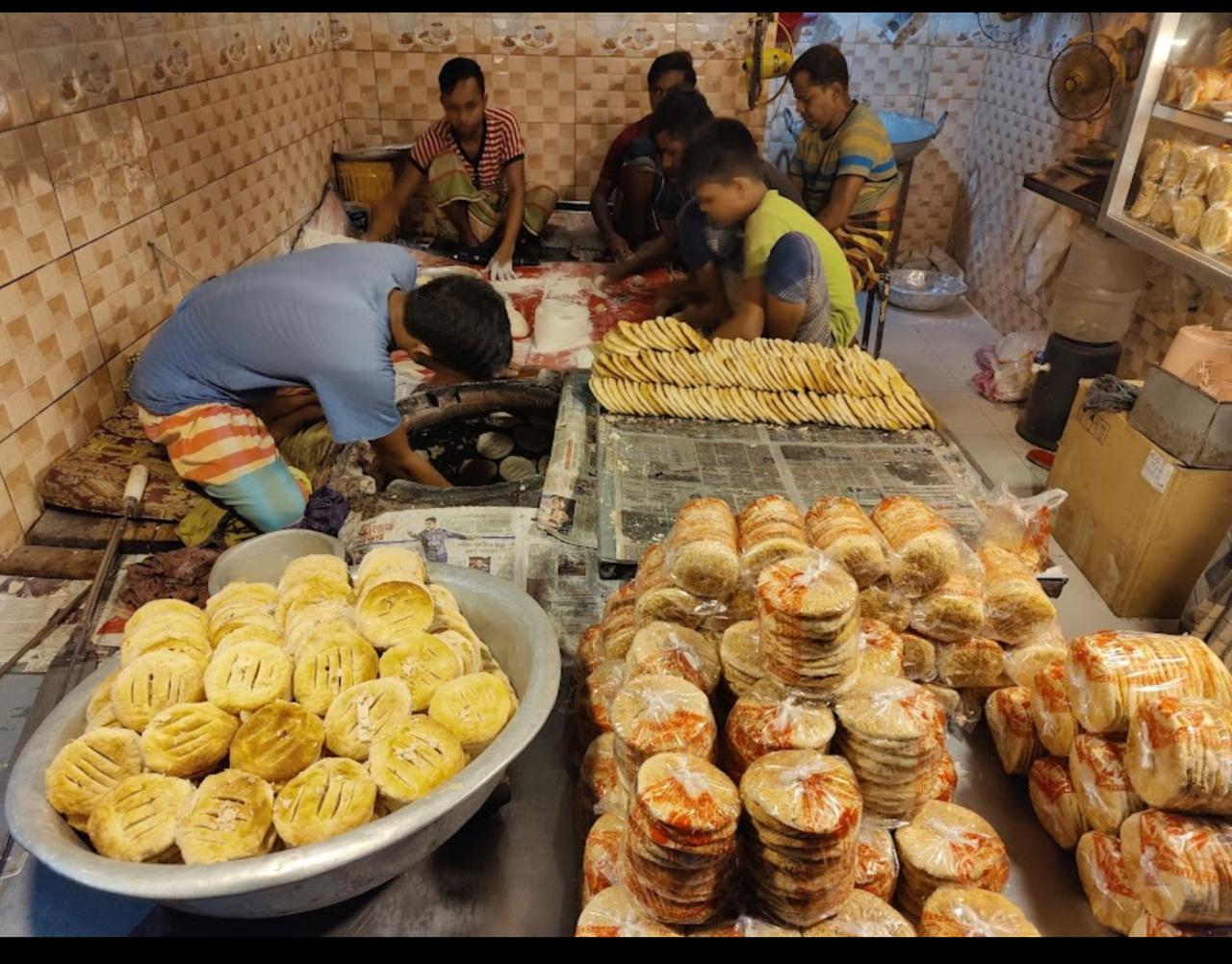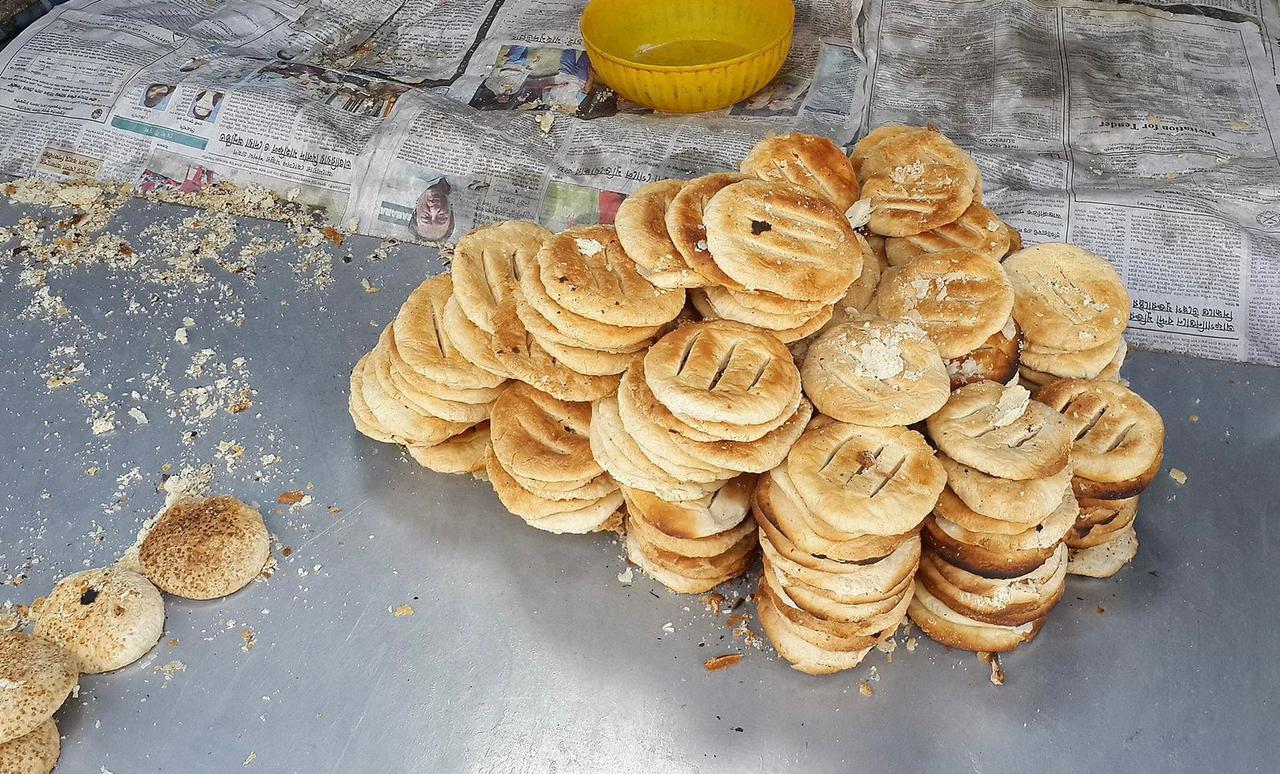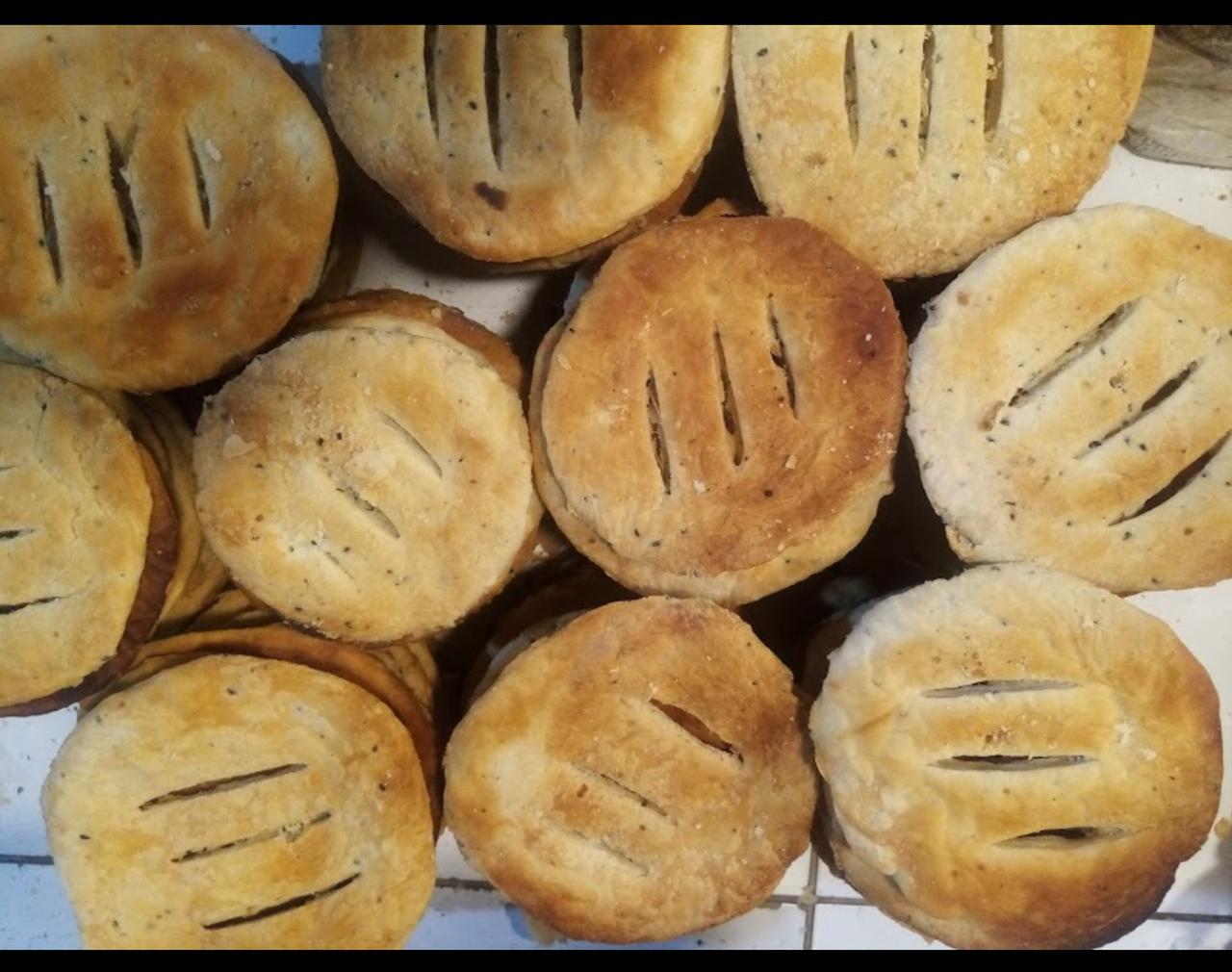News Flash

By Mahmudur Rahman Nazid
DHAKA, August 26, 2025 (BSS) - In the winding alleys of Old Dhaka, where the air is thick with the aroma of spices and stories, one flaky flatbread reigns supreme: Bakarkhani. Crisp on the outside, soft inside, this Mughal-era marvel isn't just a breakfast staple, it's a symbol of tradition, pride, and poetic legacy.
Once served in royal courts, Bakarkhani has journeyed through centuries to become a cherished emblem of Dhaka's culinary soul.
In Old Dhaka, offering Bakarkhani to guests is more than hospitality, it's a gesture of heritage. Every bite whispers of bygone eras. Behind this crispy and delicious flatbread lies a heart-wrenching tale of love.

Historical records suggest that Bakarkhani originated during the Mughal period, possibly in the 17th century, in Murshidabad of the Indian subcontinent.
Once, it was known as a royal food among the Nawabs. According to popular legend, the story of its naming dates back to the time of Nawab Murshid Quli Khan, the first Nawab of Bangla. The origin of the name "Bakarkhani" is tied to the tragic love story of his adopted son, Mirza Agha Baker Khan.
Nawab's military commander Agha Baker Khan, who was a Persian origin, fell in love with a talented and beautiful dancer named Khani, who served in the court of the Nawabs in Arambagh, Dhaka.
Khani was renowned for her exceptional voice and dancing skills. Baker Khan fell in love with her during a performance.
However, a local man named Zainul opposed their relationship. Upon learning about the affair, Zainul abducted Khani. Enraged, Baker Khan set out to kill Zainul. Later, rumors spread that Baker Khan had murdered Zainul. As a result, Nawab Murshid Quli Khan sentenced his son to death and ordered him imprisoned in a tiger's cage.
While confined, thinking of his beloved Khani, Baker Khan created a special type of bread, what we now know as Bakarkhani.

The names of the two lovers -- Baker and Khani -- were joined to form the name Bakarkhani. Over time, the pronunciation evolved to its current form.
According to local residents, people of Old Dhaka sometimes jokingly refer to Bakarkhani as "Suka Ruti" (dry bread). Though this nickname is said in jest, it reflects the humor and playful nature of Old Dhaka's people.
Some believe the name came from the landlord Agha Baker Khan, while others call it a dry, plain bread, giving it this humorous title.
Bakarkhani makers in Old Dhaka said that the ingredients include flour, ghee, sugar, milk, oil, and salt. To add flavor and variety, spices such as cinnamon, cardamom, and black cumin are often used. All the ingredients are thoroughly mixed, kneaded, and then slowly baked so that the outer layer becomes crispy while the inside remains soft.
Today, various types of Bakarkhani are available in the market. Among the most popular are cheese, salted, salted with ghee, sweet, and nut-flavored versions. These are sold both by the piece and by weight.
On-site visits reveal that Bakarkhani is now readily available not only in the alleys of Old Dhaka but also in areas like Nazirabazar, Haji Alauddin Road, Narinda, Banglabazar, Lakshmibazar, and around the Judge Court, as well as in other parts of the capital including Tejgaon, Mirpur, Khilgaon, and Shantinagar.
While Bakarkhani was once baked in traditional clay ovens, modern ovens are now commonly used.
Old Dhaka's resident Nazim Ahmed told BSS, "Bakarkhani is an inseparable part of our lives. We eat it for breakfast and again in the evening with sweets. Breakfast feels incomplete without Bakarkhani and tea."
He added, "In my childhood, I used to buy one for four ana. Now the price has increased, alongside the demand and the number of shops."
Another customer, Mohammad Moniruzzaman, said, "Bakarkhani isn't greasy, so it's healthy to eat. Our fathers and grandfathers ate it, and so do we. Having it with tea in the morning or with sweets in the evening is still a family tradition."
Sarafat Mia, a well-known Bakarkhani maker at Bismillah Bakarkhani in Narinda, said, "We make and sell Bakarkhani from morning until midnight. People from all walks of life come to our shop. Every day we knead dough using about one and a half to two maunds of flour. Almost all types of Bakarkhani are available here. Alhamdulillah, our business is doing well."
Sarafat Mia added that "Bakarkhani is not just a type of bread, it carries with it the history, tradition, and taste of love from Old Dhaka, passed down from generation to generation."